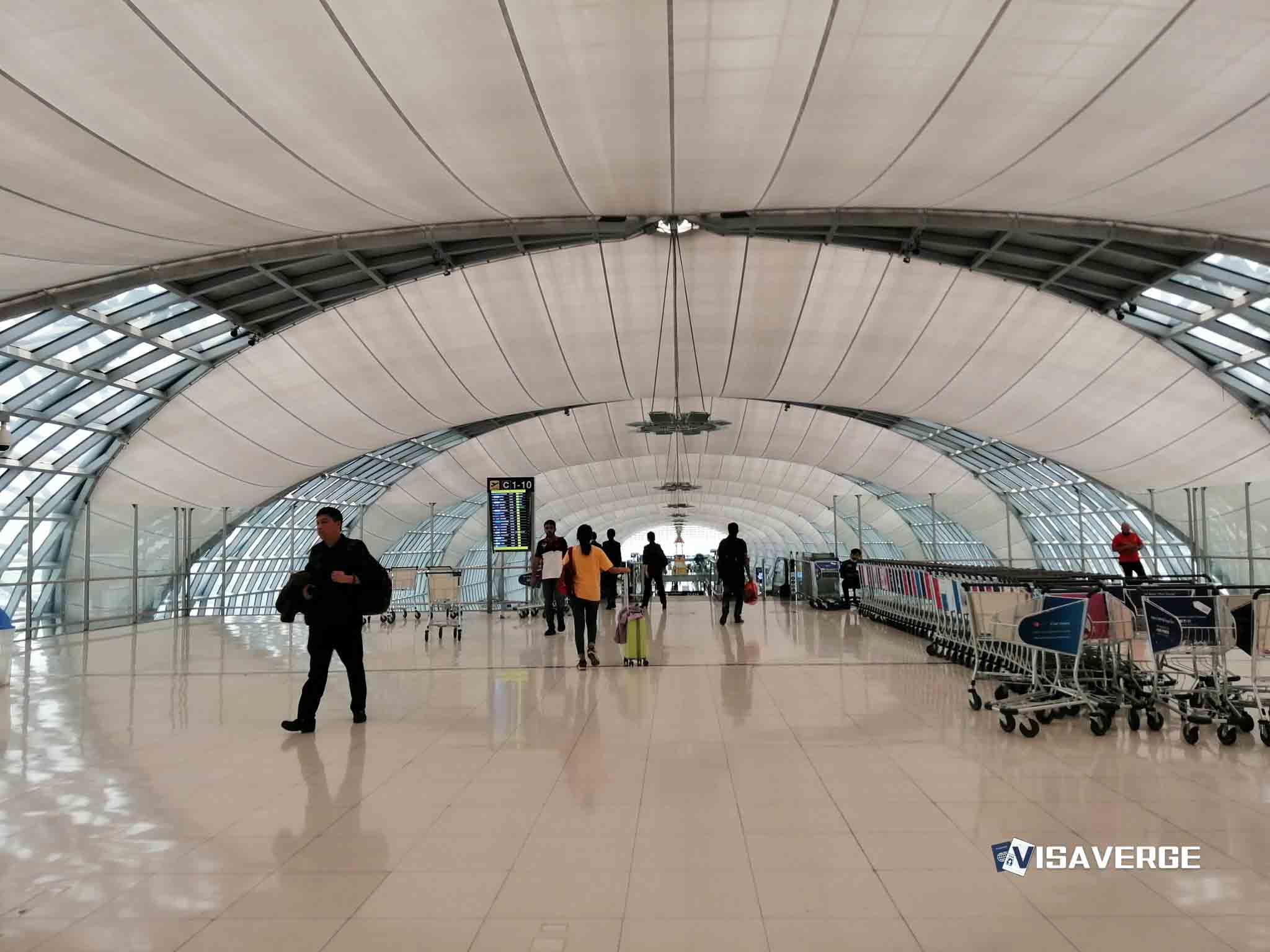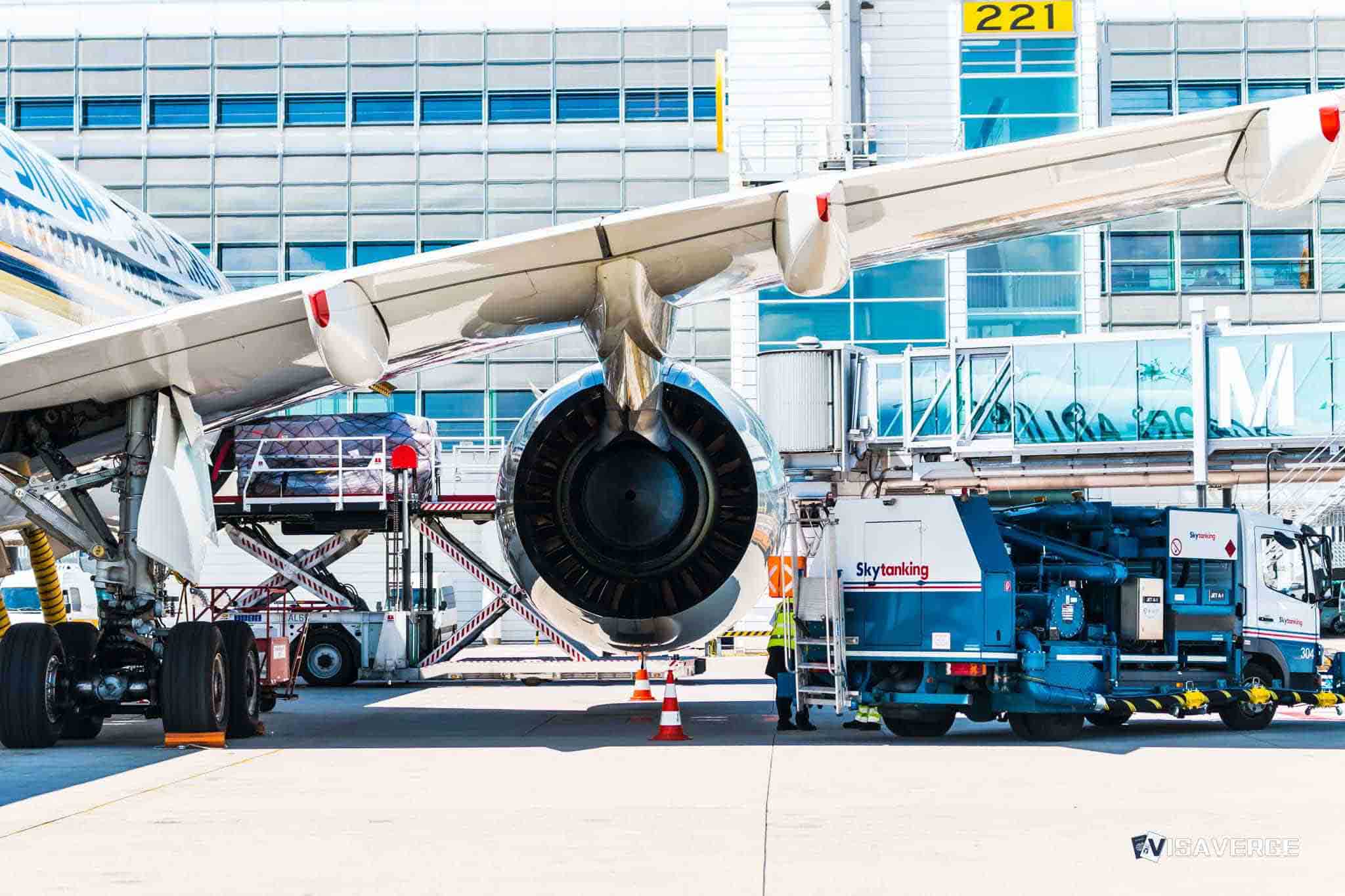Key Takeaways
• Meta’s new AI lab formed on July 2, 2025, features 11 immigrant founding members.
• Alexandr Wang leads the team with a $14 billion Meta investment in Scale AI.
• Zuckerberg offers $100 million bonuses targeting top immigrant AI talent during recruitment.
On July 2, 2025, Mark Zuckerberg made headlines with a bold move that could reshape both the technology and immigration landscapes in the United States 🇺🇸. Meta, the company formerly known as Facebook, announced the formation of its new Meta Superintelligence Lab—a team dedicated to building the next generation of artificial intelligence. What sets this team apart is not just its ambitious goal, but the fact that all 11 of its founding members are immigrants. This decision highlights Zuckerberg’s long-standing support for immigration reform and shows how important immigrant talent is for the future of technology.
Who Are the New Hires and Why Does It Matter?

The Meta Superintelligence Lab is made up of 11 highly skilled AI researchers and engineers. Many of them were recruited from top companies like OpenAI, and five of them left OpenAI shortly after the company faced public leadership problems. These experts have been brought together to work on what Meta describes as a “personal superintelligence for everyone.” This means they are trying to create AI that can help people in their daily lives, not just big businesses.
Alexandr Wang, a 28-year-old immigrant and cofounder of Scale AI, leads the team as Chief AI Officer. Scale AI is a company that helps train AI models, and Meta invested $14 billion in it as part of the deal to bring Wang on board. His leadership is seen as a key part of Meta’s plan to catch up with its competitors in the AI race.
Zuckerberg’s decision to hire only immigrants for this high-profile team is not just about finding the best talent. It also sends a strong message about the value of immigrants in the tech industry. According to analysis by VisaVerge.com, this move shows how immigration policies can directly affect a company’s ability to compete on a global scale.
How Did Meta Attract These Experts?
Meta’s recruitment strategy was aggressive and personal. Mark Zuckerberg himself reached out to potential hires, offering them deals that are rarely seen in the tech world. Some of the offers included:
- $100 million signing bonuses
- One-year salaries similar to those of professional athletes
- Opportunities to lead groundbreaking projects
These offers were designed to attract the very best minds in AI, especially after Meta’s latest AI model, Llama 4, received mixed reviews. The company knew it needed to bring in top talent quickly to stay competitive.
Why Focus on Immigrant Talent?
Zuckerberg has been a public supporter of immigration reform for many years. He believes that making it easier for skilled immigrants to work in the United States 🇺🇸 helps both businesses and society as a whole. In editorials and public statements, he has argued that immigrants bring new ideas, drive innovation, and help the country stay ahead in technology.
By hiring an all-immigrant team for the Meta Superintelligence Lab, Zuckerberg is putting his beliefs into action. This decision also highlights the real-world impact of immigration policies. If the United States 🇺🇸 makes it hard for skilled workers to come and stay, companies like Meta could struggle to find the talent they need.
The Role of Immigration Policy in Tech Innovation
The story of Meta’s new AI team shows how closely linked immigration policy and technological progress are. When companies can hire the best people from around the world, they are more likely to create new products and stay ahead of the competition. But if immigration rules are too strict, companies might lose out on important talent.
For Immigrant AI Talent:
The fact that Meta’s new team is made up entirely of immigrants sends a strong signal to skilled workers around the world. It shows that there are big opportunities in the United States 🇺🇸 for those who have the right skills. It also highlights the need for visa and immigration pathways that make it possible for top experts to work in the country.
For Immigration Reform:
Zuckerberg’s actions could influence lawmakers by showing the benefits of making it easier for skilled immigrants to come to the United States 🇺🇸. If more companies follow Meta’s lead, there could be more support for changes to immigration laws that help the tech industry grow.
For the AI Industry:
Meta’s hiring spree has raised the stakes in the race to build the best AI. Other big tech companies may feel pressure to offer better deals to attract top talent, which could lead to faster progress in AI. However, it also raises questions about whether it’s fair to “poach” experts from other companies and what this means for the industry as a whole.
What Makes the Meta Superintelligence Lab Unique?
The Meta Superintelligence Lab is not just another research group. Its goal is to build AI that can understand and help people in many different ways, including:
- Generating images, videos, and speech
- Helping with everyday tasks
- Making technology more personal and useful
The team’s focus on “multimodal AI”—AI that can work with different types of information—matches the latest trends in the field. The immigrants hired by Meta bring special skills in these areas, which could give the company an edge over its rivals.
Background: Zuckerberg’s History with Immigration
Mark Zuckerberg’s support for immigration reform goes back many years. He has written editorials, including one in The Washington Post, calling for policies that make it easier for skilled immigrants to work in the United States 🇺🇸. He argues that these policies are good for business and for the country as a whole.
Inside Meta, the company has also changed its rules to allow more open discussion about sensitive topics like immigration. This reflects a broader push for openness and free speech within the company.
The Impact on Stakeholders
Immigrants
For immigrants with skills in AI and technology, Meta’s hiring of an all-immigrant team is a sign that their talents are in high demand. It may encourage more people to pursue careers in these fields and to look for opportunities in the United States 🇺🇸.
Employers
Other tech companies may feel pressure to improve their own recruitment strategies. They might offer better pay, more flexible work options, or other perks to attract and keep top talent. This could lead to more competition for skilled workers, both in the United States 🇺🇸 and around the world.
Policymakers
Lawmakers may see Meta’s success as proof that immigration reform can help the country stay ahead in technology. This could lead to new laws or changes to existing rules that make it easier for skilled immigrants to work in the United States 🇺🇸.
The AI Industry
The race to build better AI is heating up, and Meta’s new team could help the company catch up with or even surpass its rivals. However, the focus on hiring immigrants also raises questions about fairness, diversity, and the long-term effects on the industry.
What’s Next for Meta and Immigration Policy?
Meta has said that it plans to hire even more people for the Superintelligence Lab in the coming months. This suggests that the company is serious about building a world-class AI team and is willing to invest heavily to make it happen.
At the same time, debates about immigration policy are likely to continue in 2025. High-profile cases like Meta’s new team could play a big role in shaping these debates. If lawmakers see that immigrant talent is helping the United States 🇺🇸 stay ahead in technology, they may be more willing to support reforms that make it easier for skilled workers to come and stay.
Official Resources and Further Reading
For those interested in learning more about immigration pathways for skilled workers, the official U.S. Citizenship and Immigration Services (USCIS) employment-based immigration page provides detailed information on visa options, requirements, and application processes.
Meta also shares updates about its policies and new hires on its official newsroom, where readers can find the latest announcements and statements from company leaders.
Real-World Examples: How Immigration Policies Affect Innovation
The story of Meta’s Superintelligence Lab is just one example of how immigration policies can shape the future of technology. Here are a few ways these policies make a difference:
- Visa Delays: If skilled workers have to wait months or even years for a visa, companies may lose out on hiring the best people. This can slow down innovation and hurt the country’s ability to compete.
- Work Restrictions: Some visas limit what immigrants can do or where they can work. This can make it harder for companies to use their talents fully.
- Pathways to Permanent Residency: When skilled workers have a clear path to stay in the country long-term, they are more likely to invest in their careers and contribute to the economy.
By hiring an all-immigrant team, Meta is showing that it values the contributions of skilled workers from around the world. This could encourage other companies to do the same and push for policies that make it easier to bring in top talent.
What Does This Mean for the Future of AI?
The success or failure of Meta’s Superintelligence Lab will likely have a big impact on the future of AI. If the team is able to build powerful new AI tools, it could help Meta become a leader in the field once again. This would also show that investing in immigrant talent pays off.
On the other hand, if the team struggles or faces challenges because of immigration rules, it could highlight the need for further reforms. Either way, the story of Meta’s new hires will be closely watched by people in the tech industry, policymakers, and anyone interested in the future of work.
Takeaways and Practical Guidance
- For Skilled Immigrants: If you have expertise in AI or technology, there are big opportunities in the United States 🇺🇸. Keep up to date with visa options and be ready to show how your skills can help companies like Meta.
- For Employers: Don’t overlook the value of immigrant talent. Consider how your recruitment and workplace policies can attract and support skilled workers from around the world.
- For Policymakers: Look at real-world examples like Meta’s Superintelligence Lab when thinking about immigration reform. Policies that make it easier for skilled immigrants to work in the United States 🇺🇸 can help the country stay ahead in technology and innovation.
Conclusion
Mark Zuckerberg’s decision to build the Meta Superintelligence Lab with an all-immigrant team is more than just a hiring strategy. It’s a statement about the power of immigration to drive innovation and keep the United States 🇺🇸 at the forefront of technology. As debates about immigration policy continue, this story offers a clear example of how welcoming skilled workers can benefit everyone—from companies and workers to the country as a whole.
For more information on employment-based immigration and how to apply, visit the USCIS official page. As reported by VisaVerge.com, the intersection of immigration and technology will remain a key issue for years to come, shaping not just the future of companies like Meta, but the future of work itself.
Learn Today
Meta Superintelligence Lab → A Meta research group focused on developing advanced AI that assists users personally.
Immigration Reform → Changes in laws or policies to improve immigrant entry and work eligibility.
Scale AI → A company specializing in training AI models, co-founded by Alexandr Wang.
H-1B Visa → A U.S. visa program allowing skilled foreign workers to work temporarily in the U.S.
Multimodal AI → Artificial intelligence that processes different data types like images, text, and speech.
This Article in a Nutshell
On July 2, 2025, Meta launched its Superintelligence Lab staffed entirely by immigrant AI experts, aiming to create personal AI to aid daily life, underscoring immigration’s vital role in tech innovation and global competitiveness.
— By VisaVerge.com








